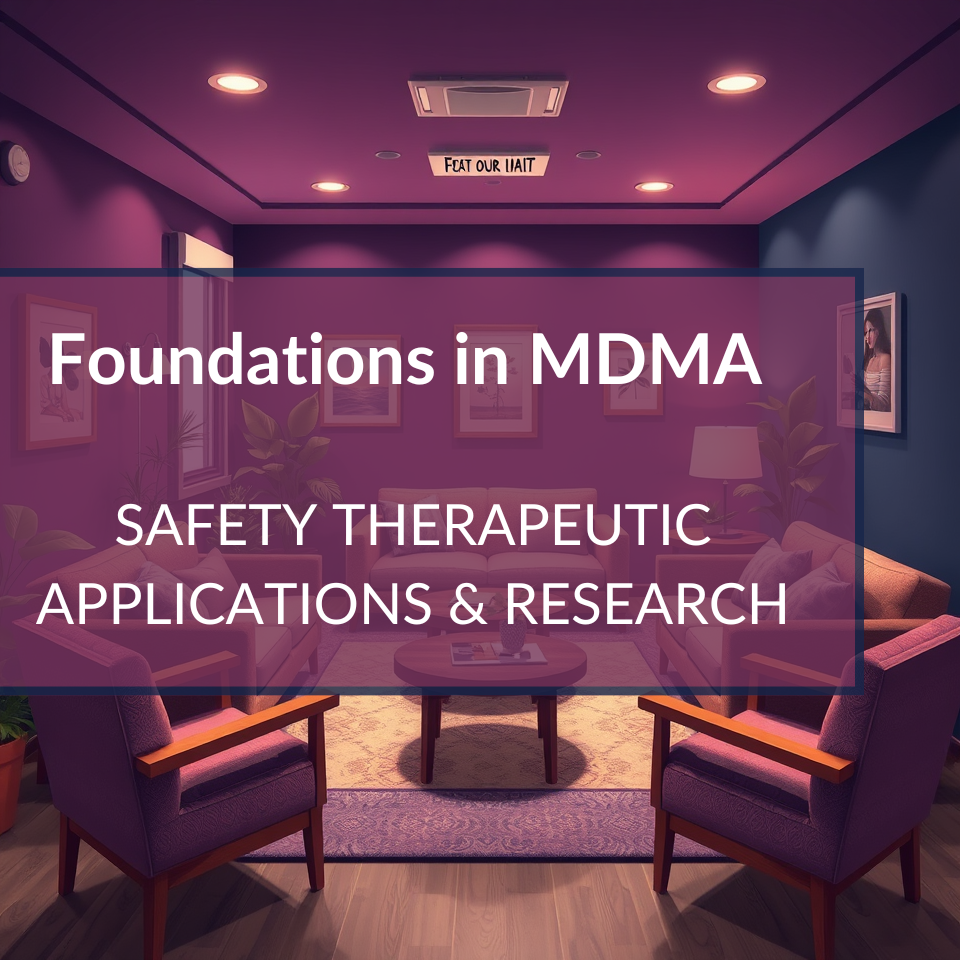Description
Explore the MDMA-assisted psychotherapy approach and become informed on clinical protocols and trial findings. You will explore several hypotheses on how MDMA may be working in the brain during psychotherapy sessions and why this technique is being studied for treating many different mental health conditions.
This course covers the safety and risks of MDMA, also known as Ecstasy, in both medical and non-medical settings. Designed by leading MDMA researchers and therapists, you will learn evidence-based information and observations from therapists who administered MDMA-assisted psychotherapy in clinical trials. If you’re a mental health professional, be sure to select our continuing education option and earn CE/CME along the way!
Who is this course for?
This course is perfect for mental health professionals, doctors, neuroscience students, and anyone interested in gaining insight into the science and therapies under investigation.
Course Curriculum
Learning Objectives for Module 1: A Simple Molecule with Complex Effects: MDMA Pharmacology, Effects, and Safety
After completing this module, participants will be able to:
- Explain how MDMA acts in the brain and body to produce psychological and physiological effects.
- Assess high-risk medical conditions and medications for MDMA use.
- Describe common reactions and adverse events associated with MDMA and how risks differ between non-medical and clinical contexts.
- Analyze neuroimaging studies of Ecstasy users.
Learning Objectives for Module 2: Neurobiological Effects of MDMA: Brain Circuits to Behavior
After completing this module, participants will be able to:
- List the common subjective effects of MDMA.
- Describe research findings from studies that investigated the effects of MDMA on social reward, cognitive and emotional empathy, and language.
- Discuss key neural circuits involved in the effects of MDMA.
Learning Objectives for Module 3: Clinical Trial Findings of MDMA-assisted Psychotherapy for Treatment of PTSD and Other Psychiatric Indications
After completing this module, participants will be able to:
- Explain the drug development pathway for MDMA from phase 1 trials to a new drug application.
- Describe phase 2 and phase 3 clinical trial methods and study designs of MDMA-assisted psychotherapy.
- Discuss the safety and efficacy findings of MDMA-assisted psychotherapy for the treatment of posttraumatic stress disorder, anxiety associated with a life-threatening illness, and social anxiety in autistic adults, and how results compare to currently available treatments.
- Describe the critiques and concerns raised by advisory committees regarding MDMA therapy for the treatment of PTSD.
Learning Objectives for Module 4: MDMA Therapeutic Approaches and Psychological Mechanisms
After completing this module, participants will be able to:
- Explain the methods of MDMA-assisted psychotherapy as described in the MDMA Treatment Manual.
- Describe possible psychological mechanisms involved during MDMA therapy.
- List other complementary therapeutic approaches to MDMA-assisted therapy that are worthy of further investigation or are currently being researched in clinical trials.
Interviews
- Interviews with MDMA-assisted psychotherapy trial therapists Genesee Herzberg, PsyD, Evan Sola, PsyD, and Sylver Quevedo, MD
License & Professional Continuing Education
This course is provided through from Psychedelic Support. Psychedelic Support offers continuing education for health providers through the Accreditation Council for Continuing Medical Education (ACCME) and the American Psychological Association (APA).
This course is approved for ACCME and APA accreditation.

